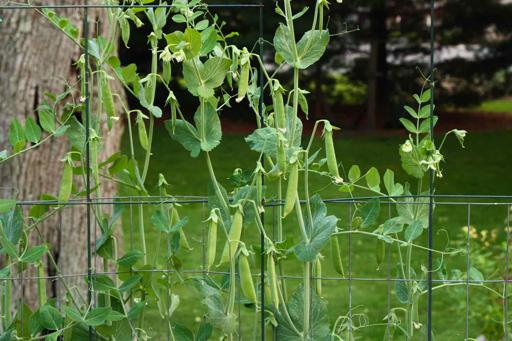Pea
Pisum sativum
Also known as: Garden Pea, English Pea, Green Pea

Growing Information
Growth Habit: Vine
Climate Requirements: Prefers temperate climates with moderate rainfall and temperatures between 15–18°C during the growing season.
Soil Requirements: Well-drained, loamy soils with a pH of 6.0–7.5.
Water Requirements: Requires moderate water, especially during flowering and pod development, but does not tolerate waterlogging.
Planting Instructions: Sown directly in the soil, spaced 5–8 cm apart in rows, with planting depth of 2–3 cm.
Harvesting Information: Harvested when the pods are well-formed, but before they become overripe, typically 60–70 days after planting.
Characteristics & Benefits
Plant Characteristics: Pea is a cool-season legume grown for its edible seeds, often consumed fresh, frozen, or dried. It grows as a vine or bush depending on variety.
Nutrient Content: High in protein, fiber, vitamins A, C, and K, and several essential minerals.
Health Benefits: Helps in digestion, supports heart health, and is a good source of plant-based protein.
Yield Information: Average yield is 2–3 tons per hectare.
Uses & Distribution
Culinary Uses: Used in soups, salads, stir-fries, or mashed. Can be eaten fresh or dried and stored for later use.
Industrial Uses: Used in the production of pea protein and as animal feed.
Native Range: Southwest Asia and North Africa.
Current Distribution: Grown in temperate regions worldwide, with major producers including China, India, and Russia.
Pest & Disease Management
Common Pests: Aphids, pea weevil, and cutworms.
Diseases: Powdery mildew, rust, and fusarium wilt.
IPM Practices: Crop rotation, use of disease-resistant varieties, and regular inspection for pests.
Market Value: $150.00
Research & References
Studies and Articles: Research on improving resistance to pests and diseases in pea crops.
Bibliography: The Pea Plant: Cultivation and Uses, 2023.
Comments
Add CommentNo comments yet. Be the first to comment!